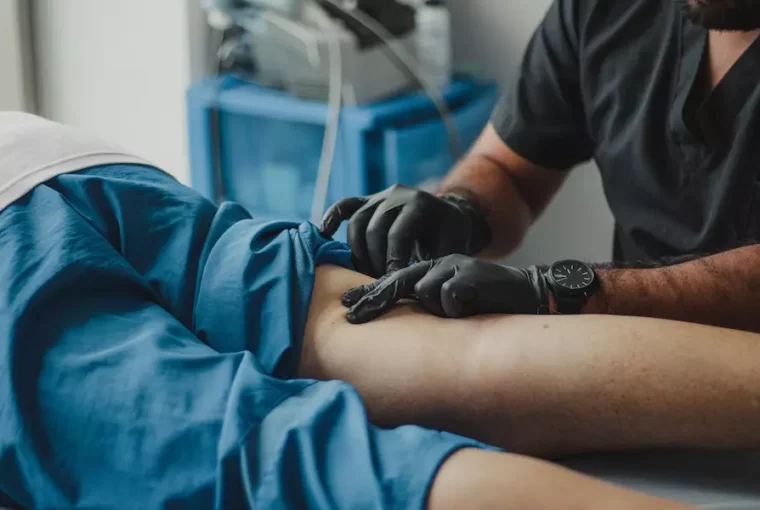When you’ve got knee surgery scheduled, it’s normal to feel a mixture of excitement and dread. The procedure will ultimately improve your mobility immeasurably, but aside from the anxiety that’s normal when going under the knife, there’s also the prospect of a long and potentially arduous recovery to contend with.
To calm your nerves and give you a roadmap to follow pre and post-op, here’s a straightforward checklist for all knee surgery patients.
Pre-op
You might be surprised by the amount of work that’s involved in preparing for an operation on your knee. This includes:
Following a recommended exercise program
There are a variety of knee exercises that can help strengthen your joints if you are suffering from problems with this area of your body.
You’ll need to follow the advice of your physician to know which routines you should be doing in the run-up to surgery.
It might seem odd to suggest that you should start working out your knee prior to the operation, but the point is that if you’ve not been using the muscles in this part of your body because of an existing issue that’s soon to be rectified, then your recovery will take longer.
When following an exercise program, don’t just focus on the knee that’s being operated on, but balance the reps across both, and you’ll really feel the benefits.
Getting information about where you’ll receive treatment
You can minimize the stress of knee surgery if you’re completely clued up on all aspects of the hospital where the operation is set to take place.
Check the facility’s website and note down key information, such as what on-site amenities are available when visiting hours are scheduled and what time you’ll be expected to arrive ahead of the procedure.
Putting together a bag for your hospital stay
Don’t just treat this like a visit to the emergency department. You won’t be in and out in a few hours, as most knee surgeries involve at least an overnight stay if not two.
Having a bag packed with everything you need ready to go is a good move as a result. Things to include in this are loose-fitting clothing as well as nightwear, comfortable shoes or preferably slippers, a wash bag with essentials like a toothbrush and shampoo, snacks, a book or magazine, and a charger for your phone or tablet, so you don’t get too bored during your stay.
Finding a trusted orthopedic surgeon in your area
If you’ve got a choice of who handles the operation, then getting recommendations for specialists in orthopedics who are local to you is worthwhile.
For example, knowing that a high-quality Houston based sports doctor will be taking care of you throughout the procedure will put your mind at ease.
Don’t be shy about asking for information and testimonials relating to any surgeon. You have a right to know what you’re getting yourself into.
Asking about anticipated outcomes
We might want to bury our heads in the sand when it comes to the potential outcomes of any major surgery, especially regarding any complications that might occur and the pain that is almost inevitable even if everything goes to plan.
These are all questions that you really need to ask your surgeon and the rest of the medical team that’ll be looking after you. It will be a load off your mind to know how things may play out and crucially to understand the likelihood attached to each eventuality.
Post-op
Once the surgery on your knee is complete, the true recovery process can get started, and there are several steps involved, such as:
Taking prescribed medication for pain
Knee surgery can leave your body feeling tender, and pain and discomfort will be felt unless you take medication to suppress them.
Once again, the medical professionals who are handling your case will give you all the guidance you need on this aspect, and there’s no one-size-fits-all solution here, so you need to heed their input.
Working with a physical therapist
The things you need to do to look after your knee post-op while still ensuring that you are strengthening it and getting it back to a semblance of normality will be passed on by a trained and experienced physical therapist.
They’ll often be the ones who get you up and about in the hospital once you’ve finished your initial recovery from the operation itself.
Other team members will also advise you on how to handle the more mundane aspects of living with a recently operated-on knee, such as elements we usually take for granted, like showering and getting dressed.
Returning home
It should go without saying, but if you’ve just had an operation on your knee, then you’ll not be able to drive yourself home.
The hospital may be able to provide transport if necessary, but it’s better to get a family member or a friend to ferry you to and from the hospital before and after the operation.
Sticking to recommended routines
Recovery from knee surgery won’t be instantaneous, but neither will it take an inordinate amount of time. It’s all down to how closely you follow the guidance you’ve been given.
Generally speaking, you’ll be encouraged to do light exercise that gradually builds up over time, with low-impact sports better for allowing your knee to recover without putting undue pressure on the joint.
Cycling and swimming are two excellent examples of this, although even something as simple as going for a 30-minute walk will make a difference in most cases.
Wrapping up
With knowledge, you can demystify knee surgery and make it far more manageable. It’s also helpful to be realistic and patient with your body. Don’t rush your recovery or get frustrated if it takes longer than anticipated. You’ll be thankful in the long run if you were kind to yourself and went at your own pace instead of expecting to be running a marathon the day after the operation.




